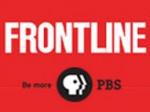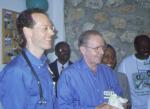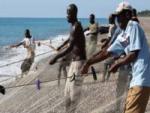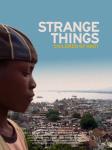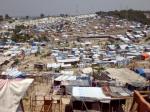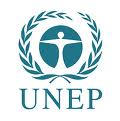PAZAPA: 2010 In Review
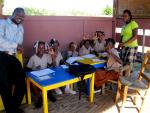 Established in Jacmel in 1987, the mission of PAZAPA (Step by Step) is to support the treatment, education and development of children with disabilities and to integrate them into their communities. During the earthquake, the PAZAPA School was damaged beyond repair. PAZAPA has since acquired new land and established temporary structures within which to continue classes. Both the special education school and the school for the deaf are functioning. Fortunately, none of the PAZAPA staff were hurt and stipends were provided to help them rebuild their homes. Below are excerpts from PAZAPA’s recently completed 2010 Annual Report.
Established in Jacmel in 1987, the mission of PAZAPA (Step by Step) is to support the treatment, education and development of children with disabilities and to integrate them into their communities. During the earthquake, the PAZAPA School was damaged beyond repair. PAZAPA has since acquired new land and established temporary structures within which to continue classes. Both the special education school and the school for the deaf are functioning. Fortunately, none of the PAZAPA staff were hurt and stipends were provided to help them rebuild their homes. Below are excerpts from PAZAPA’s recently completed 2010 Annual Report.



